Knee Revision Replacement in Ahmedabad
Dr. Saurin Shah’s Expertise
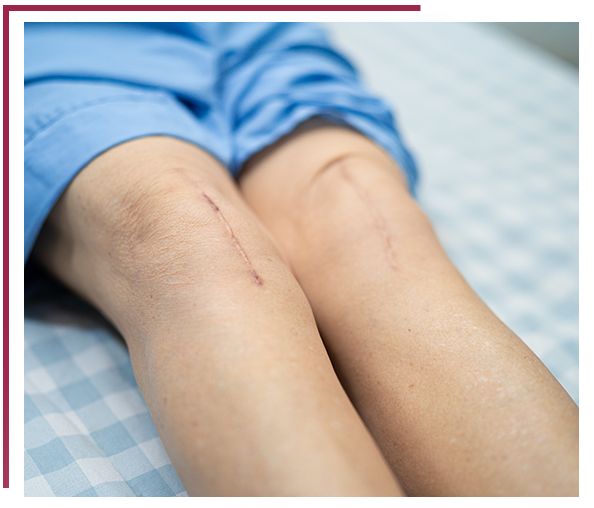
What is Revision Total Knee Replacement?
Total knee replacement is one of the most successful procedures in all of the medicine. In the vast majority of cases, it enables people to live richer, more active lives free of chronic knee pain.
Over time, however, a knee replacement may fail for a variety of reasons. When this occurs, your knee can become painful and swollen. It may also feel stiff or unstable, making it difficult to perform your everyday activities.
It also knows knee Revision replacement surgery as revision total knee replacement. It’s a procedure that orthopedic surgeons used to replace previously implanted artificial knee joints, or prosthetics, that have become loose, are causing pain, or are at risk of causing harm to the knee joint.
Following an evaluation and consultation, the knee surgeon will replace your current prosthesis with a new prosthesis in a similar manner to your original surgery or customized to your needs. The surgeon might also use bone graft from another area in the body or from a donor, instead of an artificial prosthesis.
Knee revision surgery, like knee replacement surgery, is a procedure that will require ample time for recovery and physical therapy to achieve the best results. Most knee revision patients enjoy far less discomfort in the knees once fully healed.

Understanding Knee Revision Surgery
Knee revision surgery is a procedure that replaces a failed or problematic knee implant to restore pain-free movement and joint function. This complex procedure requires specialized expertise.
When is Knee Revision Needed?
-
Implant loosening over time
-
Persistent infection in the joint
-
Significant wear of implant components
-
Instability causing pain or difficulty walking
-
Fracture near the implant site
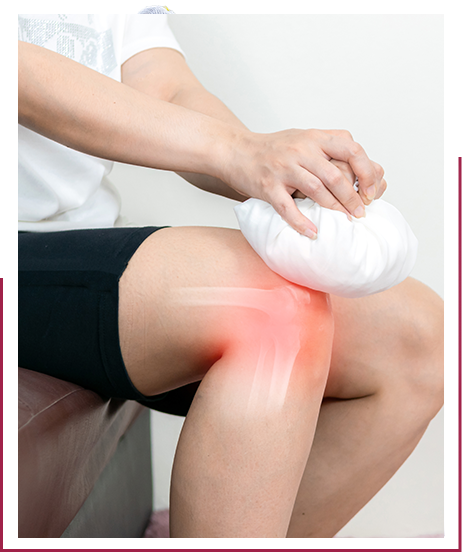
Causes of Knee pain
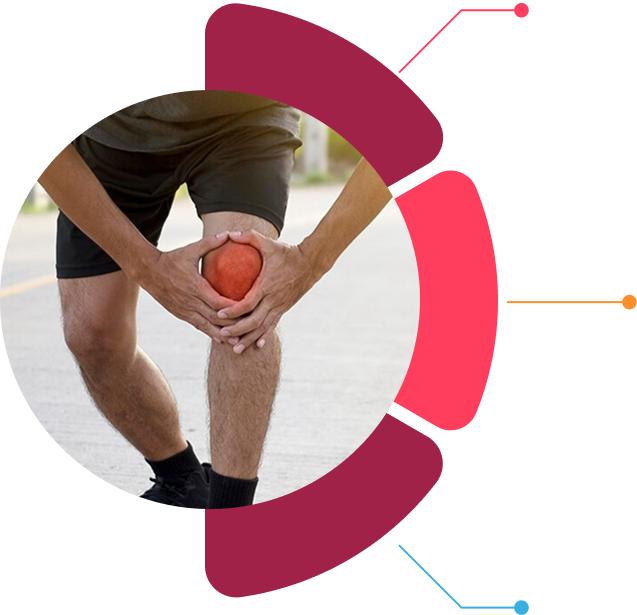
Osteoarthritis:
Best Orthopedic Doctor in Ahmedabad is an established and highly skilled Knee and Joint Replacement Surgeon in Ahmedabad. Till date, he has successfully completed more than 10000+ knee replacement surgery in Ahmedabad. His astounding success ratio is 100 %. With no single case of failure.
Rheumatoid arthritis:
This is a disease in which the synovial membrane that surrounds the joint becomes inflamed and thickened. This chronic inflammation can damage the cartilage and eventually cause cartilage loss, pain,
Post-traumatic arthritis:
This is a disease in which the synovial membrane that surrounds the joint becomes inflamed and thickened. This chronic inflammation can damage the cartilage and eventually cause cartilage loss, pain,
Reasons for a revision
Short-term revisions:
infection, implant loosening from the failed procedure, or a mechanical failure
An infection will usually present itself within days or weeks of surgery. However, an infection can also occur many years after surgery.
Infection following knee replacement can cause severe complications. It’s caused by bacteria that settle around the wound or within the device. Contaminated instruments can introduce infection or by people or other items within the operating room.
Because it takes extreme precautions in the operating room, infection rarely occurs. However, if an infection takes place, it can lead to a buildup of fluids and potentially a revision.
If you notice any unusual swelling, tenderness, or fluid leakage, contact your surgeon immediately. If your surgeon suspects that there’s a problem with your existing artificial knee, you’ll undergo an examination and assessment. This involves X-rays and possibly other imaging diagnostics such as a CT or MRI scan. The latter can provide important clues about bone loss and determine whether you’re a suitable candidate for a revision.
People who experience fluid buildup around their artificial knee usually undergo an aspiration procedure to remove the fluid. The doctor sends the fluid to a lab to determine the infection and whether a revision surgery or other treatment steps are in order.
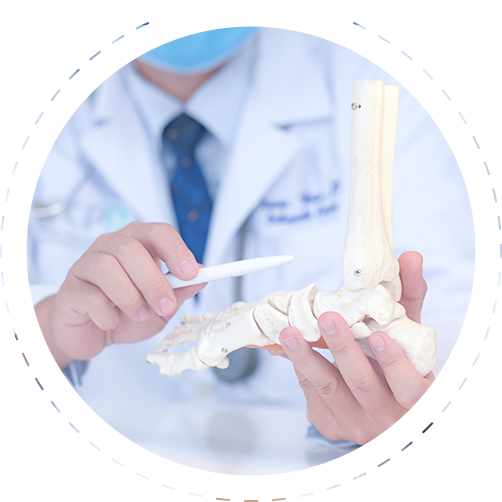
Benefits and Risks
Benefits of Knee Revision Surgery
- Pain Relief: Alleviates chronic discomfort
- Restored Movement: Regains walking ability
- Improved Stability: Corrects joint alignment
- Long-Term Solution: Utilizes newer or more durable implants
Potential Risks to Consider
- Infection Risk: Higher than primary replacement
- Longer Recovery: More complex rehabilitation
- Bone Loss: May require grafting techniques
- Implant Lifespan: May not last as long as the first replacement

Why Choose Dr. Saurin Shah?
- Advanced Techniques: Custom solutions for complex cases
- Infection Expertise: Specialized protocols for septic revisions
- Precision Approach: Optimal implant positioning
- Comprehensive Care: Personalized recovery plans
Making an Informed Decision
While revision surgery carries higher risks than initial replacement, the benefits often outweigh them when:
- Pain significantly impacts quality of life
- Mobility has become severely limited
- Non-surgical treatments have failed
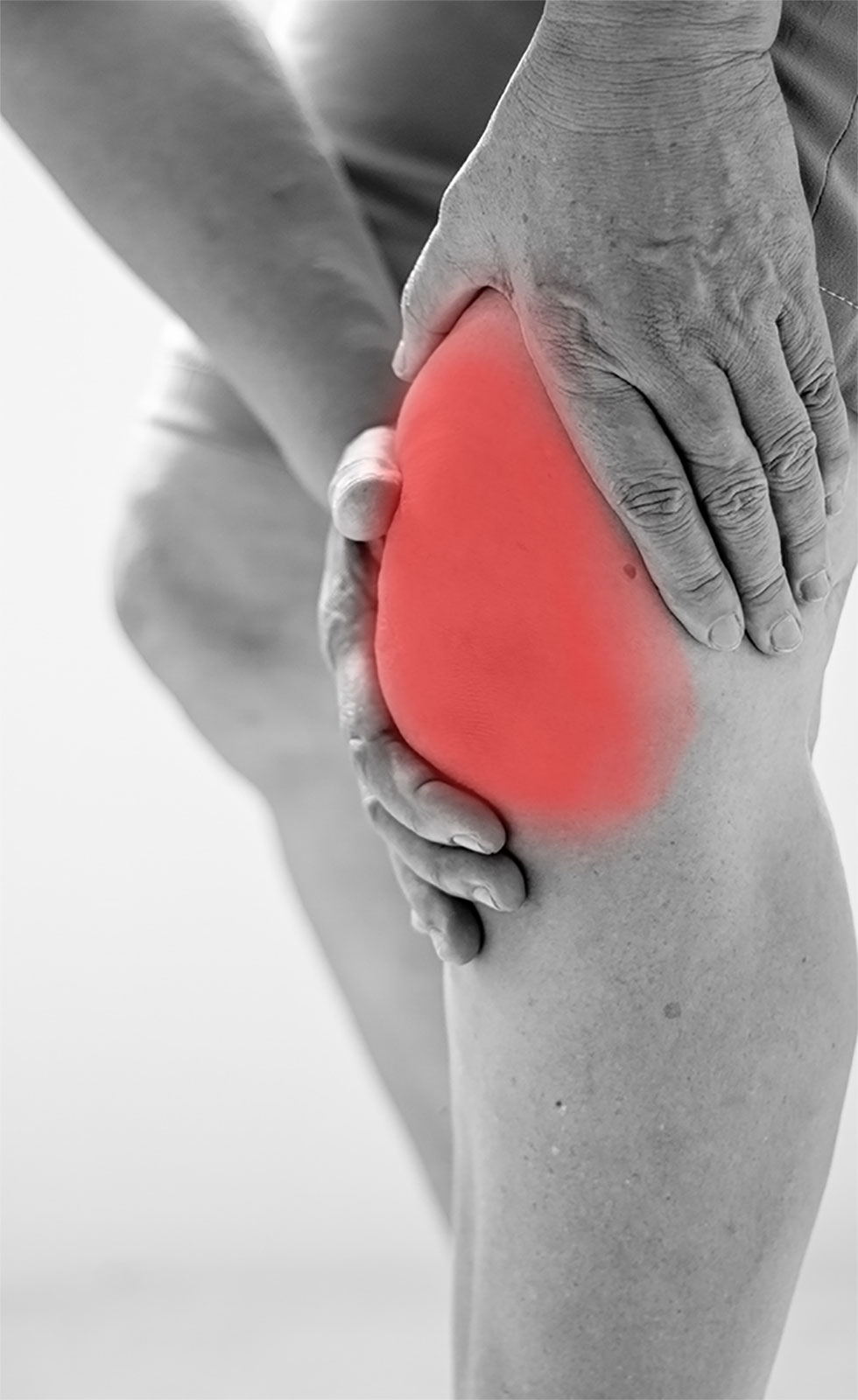
FAQ's
The success rate of knee revision surgery is 85-90%, depending on surgical technique and rehabilitation.
Modern revision implants generally last 10 to 15 years with proper care.




